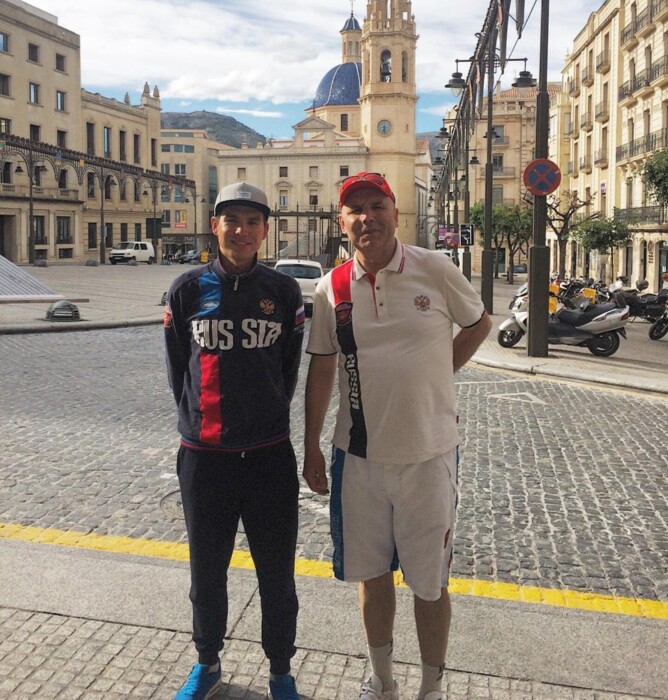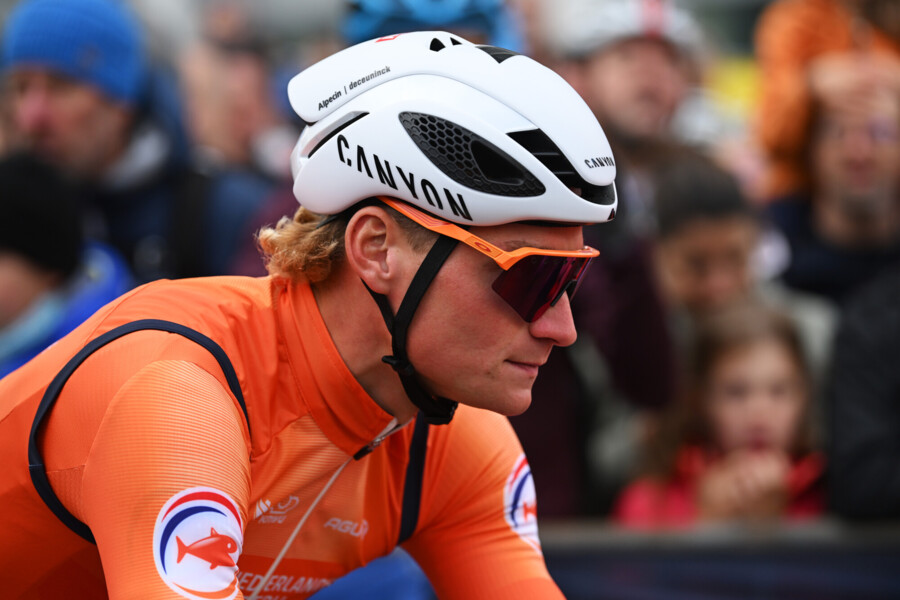Alexander Grigoriev is in the top 10 of the European gravel championship. The son of a cyclist from Chuvashia, former member of the USSR national team, Veniamin Grigoriev, has been supporting Portuguese projects for many years. How did he get there and what attracted him to gravel racing?
“I played first in the youth Katyusha, then in Russian Helicopters, where there was already a focus on the track,” Alexander told . — Then I tried my hand at MTV in Russia and took part in international competitions in Spain. I was looking for accommodation there during the race and met the director of the Spanish amateur team. He helped me. After doing the mountain bike race, he asked me if I would like to do a road race with their team. I accepted. I think he was second. The director said: “Come and join our team, we will have important races – the Spanish Cup.” As a result, I won two Spanish Cups and started looking for options to join a big team.
My father Veniamin Gennadievich Grigoriev, who is both my coach and my mentor, an example for me in everything, always insisted that we must seek and communicate with people. And I followed his advice.
That’s how it happened – I searched, wrote, called. At the end of the year I was invited to the Portuguese team. The algorithm worked! Riders are looking for teams, teams are looking for drivers. One of the managers talked about me. They showed me the finished proposal. Of course, I wanted to join a professional team – in Spain at that time there was only Movistar and Caja-Rural, but I understood how much competition there was for places. As a result, I accepted the offer and thus began my Portuguese life.
— Were any of our guys racing in Portugal at the time?
– No. I crossed paths with Russian guys during races. Our team traveled to China, Morocco and Argentina. We had a good field, there was an Italian rider who took the Tour de France jersey. So when I arrived, I felt like I was in a professional team.
— What is the current situation of cycling in Portugal?
— There are nine continental teams, there is a competition between them. This gives impetus to the development of Portuguese cycling. The main race is the Tour of Portugal. If you ask young local riders about their dreams, they will answer that they want to win the Tour of Portugal, not the yellow jersey of the Tour de France. This is their motivation for development.
— Tell us about the current team, is José Azevedo at the helm?
– He created it. There was already an Efapel team before, but it was a different structure. He created this team and the sponsor came to this project.
– How does it work? Does the project exist with sponsorship money or with money from the region as well?
— The budget is based on sponsorship money, we are based on contractual obligations. Regions also give money to teams, but it depends on the specific project. In our case, the budget comes entirely from the sponsor.
— I know that in Portugal, cycling teams are sometimes even associated with football clubs.
– Yes, such a thing exists. I was in a team whose sponsor was the Sporting football team. It all depended on football, football money. We had a presentation twice at the Sporting stadium. It was interesting.
— Are there contractual obligations to maintain social networks and be active in the media?
— Such recommendations exist. And as a team member, I want to do what I do on social media. It’s part of the job, but also, in principle, gratitude to the team. Small teams have friendly, more family-like relationships. Well, attendance at a certain number of events, wearing the team uniform at events – this is already discussed in the contract.
— This fall you managed to finish both the World Championships and the European Championships on gravel. As?
– Yes, gravel is a pleasure! It probably comes from childhood – I did cyclocross, MTV. Dirt, gravel, sand, stones, roots, wide tires! Gravel is a mix of road and cyclocross, technical climbs, descents, and even running sections during certain races. In gravel, a lot depends on the configuration of the bike, many factors influence the result, except the main one: physical fitness. And this is an individual story, here you are not in a team, you are only responsible for the result to yourself.
“Nevertheless, the World Tour summits have already made it clear that gravel is also their story. Don’t you want to say: “Guys, go on your Tour of Flanders, leave it to us”?
– No (laughs). For me, it’s another chance to start with the best in cycling, the best riders on the planet. It’s a cool opportunity and a sort of World Tour for me, it’s growth prospects. We do this for example in the Volta Algarve, but gravel offers an additional opportunity.
— You raised money for the World Cup through crowdfunding. In Russia, few people dare; one athlete said she was embarrassed to do so.
– I’ll take it calmly. This time, however, I didn’t run this story anywhere. Next year I’ll try, maybe I can harvest more.
— At the World Championships you were 66th, in Europe you were in the top 10. Was there a big difference in the course or did everything happen differently at the tactical level?
— 292 people took part in the World Championships. The particularity is that this whole crowd enters a narrow path where only one cyclist can pass. Position therefore plays a decisive role here. In profile, it was more the Belgian “classic”, with many turns, but with gravel sections, ground paths – on the sides of the puddle.
I had number 139 and started somewhere in the middle. At the first turn – and this is the second kilometer – there was a blockage. Those who were in front left, everything stopped behind – while you are raking, you lose a lot of time.
You have to have a position in front. To do this, you must win a World Series stage or be Mathieu van der Poel.
— And the European Championship?
— The race in Italy, in my opinion, was a more classic dirt race. There were ups and downs, lots of gravel, dirt, everything was wet after the rain. At first there was a climb, so position wasn’t that important – you could get out on the climb. And that’s what happened. There were three 50km laps – basically always 25km up, 25km down. The descents are gravel, dangerous, with turns. The type of track suited me.
— A tragedy occurred: a person died during the Masters race. Have there been any reports that the race may be canceled?
“My condolences for what happened.” It’s a shame that this happens in cycling. We saw the ambulance, but we didn’t know what happened, we were just driving. After the finish, we already learned that a tragedy had occurred and that the organizers had only allowed the “elite” to finish.
— Why aren’t cyclocross, MTV and gravel developed and popular in Russia?
– I don’t have an answer to this question. I see that amateur cycling is developing – guys ride, go to training camps in Sochi. But in general I agree that gravel racing or cyclocross is easier to do. But gravel is a very young story, only three championships have taken place under the auspices of the UCI. Hopefully it will come to Russia and start growing.
More sports news in our telegram channel .
Source : MatchTV
I’m John White and I’m an experienced journalist working in the news industry. My specialty is covering sports news, which I’ve been doing for over 6 years now. During this time, I have worked as an author with Athletistic, a popular online news website focusing on sports topics.





